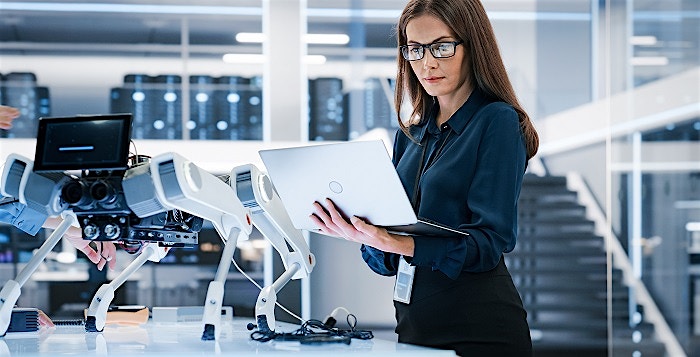Artificial intelligence (AI) — a controversial force for good — has time and again faced criticism. This time, a new study has warned that by 2027, worldwide AI-related electricity consumption could increase by 85 to 134 TWh, which is comparable to the energy consumption of countries like the Netherlands, Argentina and Sweden.
Even though big tech firms have recently experimented with and added a host of AI-powered services, experts, including the report author, Alex De Vries, PhD candidate at the VU Amsterdam School of Business and Economics, and the BBC said such research is speculative as tech firms do not disclose enough data for an accurate prediction to be made.
Referring to the approximate range for the energy consumption of AI, De Vries told the BBC: “You would be talking about the size of a country like the Netherlands in terms of electricity consumption. You’re talking about half a percent of our total global electricity consumption.”
The study — based on some unchanged parameters such as the rate at which AI is growing, the availability of AI chips and servers continuing to work all the time — also added that AI’s environmental impact could be less than feared if its current growth slowed.
AI systems require data centers (DCs), which consume huge amounts of electricity and water to function. Google’s AI program that cools down DCs, is an example of how AI is replacing old manual techniques with a sustainable solution.
Driving sustainability with AI
There are many examples where AI is helping solve environmental challenges, such as waste management of plastic pollution and supporting the creation of a circular economy. For example:
- Google, Breakthrough Energy and American Airlines recently found pilots could halve the number of contrails or vapor trails — created by aircraft that contribute to global warming — by using an experimental AI tool to select altitude.
- BeeOdiversity uses thousands of bees to harvest pollen in a two square miles area near the Klamath river basin in the US thanks to AI expertise and tools shared by Microsoft. This project aims to clean up the river and bring back salmon and other species. The pollen collected by tens of thousands of honeybees is monitored and analyzed to create a clear, accurate picture of the plant life, pollution and pests present in the environment.
- The Biden government is trying to recreate nuclear fusion or the way the Sun gets its energy to generate green power supply. This research has been going on since 1960 with very little progress, but AI could expedite the process.
- In the agriculture sector, AI is successfully running self-driving tractors and combine harvesters, drones and robots for crop inspection and autonomous sprayers are watering and spraying insecticides on the plants at the right time. Companies like Plenty and AppHarvest are using data on crops to adjust the environment for optimal nutrition and flavor.
- AI helps people understand the difference between green claims and greenwashing. Green claims are run through AI platforms for reliable, timely and comprehensive insights and facts, while generating ESG alerts and identifying related risks.
AI is a controversial technology that is often portrayed as something that will gradually eliminate jobs and raise the world’s carbon footprint. However, those concerned about the environment are using it as a force for good, including utilizing its energy-saving capabilities and making the most out of the productivity and efficiency AI brings across several industries.
To leverage the power of generative AI, HCLTech recently expanded its partnerships with Google Cloud and Microsoft to develop joint solutions to enable businesses to achieve better outcomes and enhance business transformation.
HCLTech GenAI Labs develop industry-specific solutions leveraging the power of GenAI to offer personalized and data-driven experiences to enterprises, that improve decision-making and drive business growth.
With these GenAI capabilities, HCLTech has been transforming various sectors, including the healthcare industry with real-time data and patient-friendly chatbots. Apart from AI, HCLTech has also partnered with Uplink with a $15 million investment over five years to drive a freshwater conservation and management agenda.
Want to learn more about what AI has to offer in the next five years? Read more here: What AI has in store for you in the next five years.





